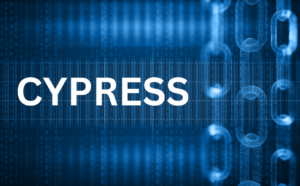GitHub is a web-based interface allowing real-time collaboration. It encourages teams to work together in developing code, building web pages and updating content. GitHub is useful in the development stage for code, content, research, web pages, and more. With GitHub, you can easily track changes and navigate revisions. That explains its popularity with so many users. This article describes how to use GitHub, its benefits, and where you might encounter it professionally, as well as how to use it personally.
What is GitHub used for?
GitHub is a platform that allows you to create, store, modify, merge, and collaborate on files or code. It provides a central repository (think of it as a shared folder) where team members can access the most recent version of a project in real-time. This means everyone can make edits, and any changes are immediately visible to collaborators. GitHub also supports communication among team members, enabling them to request changes, discuss iterations, and collaborate on projects. It’s often called “a social coding platform” because it fosters coordination and collaboration among developers, even when working remotely and asynchronously.
What’s the difference between Git and GitHub?
Git is a version control system used by GitHub to track and manage changes to files and code. It’s open-source and free for both small and large projects. Git helps you keep a record of every change made to a project, allowing you to track progress and undo changes when necessary. GitHub, on the other hand, is a platform that uses Git to host and share projects, making it easier to collaborate without needing to use Git’s more complex command-line tools. GitHub is where developers can store their projects, share them with others, and collaborate efficiently.
Who uses GitHub?
While GitHub is primarily used by developers, it has a broad appeal. Anyone who works with code or digital projects can benefit from its features. Common users include:
- Developers and software engineers working on collaborative coding projects
- Scientists and researchers sharing data or code
- Content creators building websites or blogs
- Students learning coding or software development
- Educators sharing educational materials and resources
Why is version control important?
Version control is essential for collaboration because it ensures transparency and makes it easy to track changes over time. It allows collaborators to experiment with new ideas while having the security of being able to revert to previous versions if something doesn’t work out. With version control, developers can work simultaneously on different parts of a project, and any conflicts between changes can be resolved easily. This process prevents accidental loss of important work and makes the development process more organized and predictable.
What makes GitHub so popular?
GitHub has become one of the most widely-used platforms for developers and teams, with over 100 million developers and 4 million organizations using it. Here’s why:
- User-friendly: Even beginners can quickly get started with GitHub. A free account gives you access to millions of public repositories, and it’s simple to create, share, and collaborate on projects.
- Collaboration-friendly: GitHub allows unlimited collaborators on public and private repositories, enabling seamless teamwork. With version control, you can track every change made and communicate directly within the platform.
- Extensive documentation and support: Thanks to its large user base, GitHub has a wealth of support resources, tutorials, and community forums, making it easy to find help regardless of your experience level.
- Open-source and reusable code: GitHub has millions of open-source projects that you can contribute to or use as the foundation for your own work, accelerating development and inspiring new ideas.
- Automation and quality control: GitHub offers features like automated testing and continuous integration, making it easier to maintain high-quality code and streamline workflows.
Alternatives to GitHub
While GitHub is the most popular platform, there are several alternatives worth considering:
- Bitbucket: Ideal for small teams, Bitbucket offers both public and private repositories and integrates well with Jira and Trello.
- GitLab: A GitHub alternative with a strong focus on DevOps, continuous integration, and more advanced features for developers.
- SourceForge: A longstanding platform that allows you to migrate your GitHub repositories and host your projects in an open-source environment.
- Google Cloud Source Repositories: A cloud-based Git repository solution designed for private repositories, with some limitations on the free tier.
How to use GitHub as a Portfolio
Using GitHub as an e-portfolio can demonstrate your technical skills and make your work stand out. Here’s how to do it:
- Sign up for a free GitHub account.
- Create your content on a separate platform (e.g., Google Docs or Microsoft Word) to ensure you have a backup copy.
- Add your work to GitHub by creating a new repository. Note that repositories are public by default, so you may want to set it to private if it’s a work-in-progress.
- Collaborate with others by sharing your repository, requesting feedback, and revising based on suggestions.
- Publish your work on a public GitHub page when you’re ready.
- Share your portfolio with your network, including potential employers, by including the link on your resume or LinkedIn profile.
GitHub is a powerful tool for collaboration, version control, and building a digital portfolio, making it an essential resource for developers, content creators, and anyone involved in digital projects.





